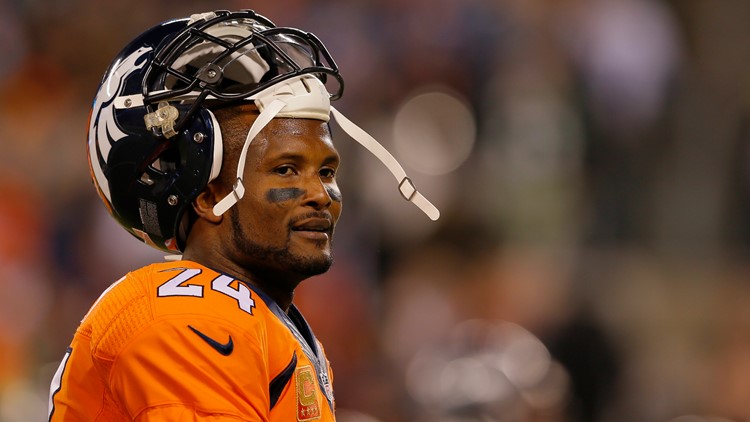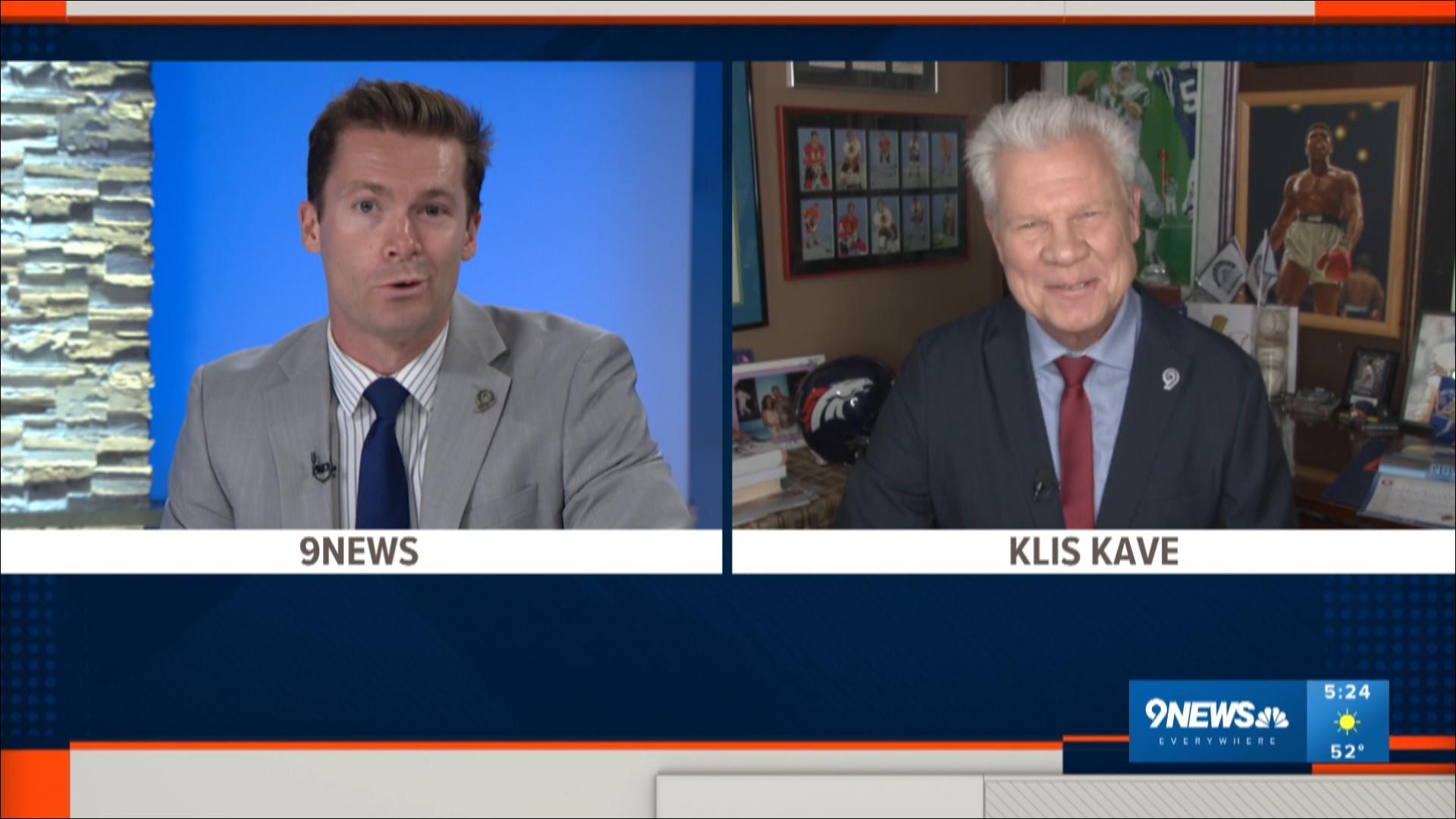KUSA – It wasn’t just speed, athleticism, ballhawking skills and willingness to tackle that made Champ Bailey a Hall of Fame-caliber cornerback.
It was his innate awareness. He didn’t come up with 19 interceptions in back-to-back seasons of 2005-06 without being aware.
Champ understands the emotional swing at stake Saturday when a 48-member voting committee gathers to elect the Pro Football Hall of Fame class of 2019.
“It’s nerve-wracking,’’ Bailey told 9NEWS in a phone conversation Tuesday. “Everybody’s telling me good look. Just rolling with it, man. Just rolling with it.’’
Bailey was told of the 9NEWS straw poll of Hall of Fame voters that revealed he was running third on the 15-finalist modern-era ballot. The two slam dunks are tight end Tony Gonzalez and safety Ed Reed, who like Bailey are in their first year of Hall of Fame eligibility.
Bailey earned 12 Pro Bowl berths – the most ever by a cornerback and three more than Reed – in his 15-year career, yet he is considered a step below the level of Gonzalez and Reed for the class of 2019.

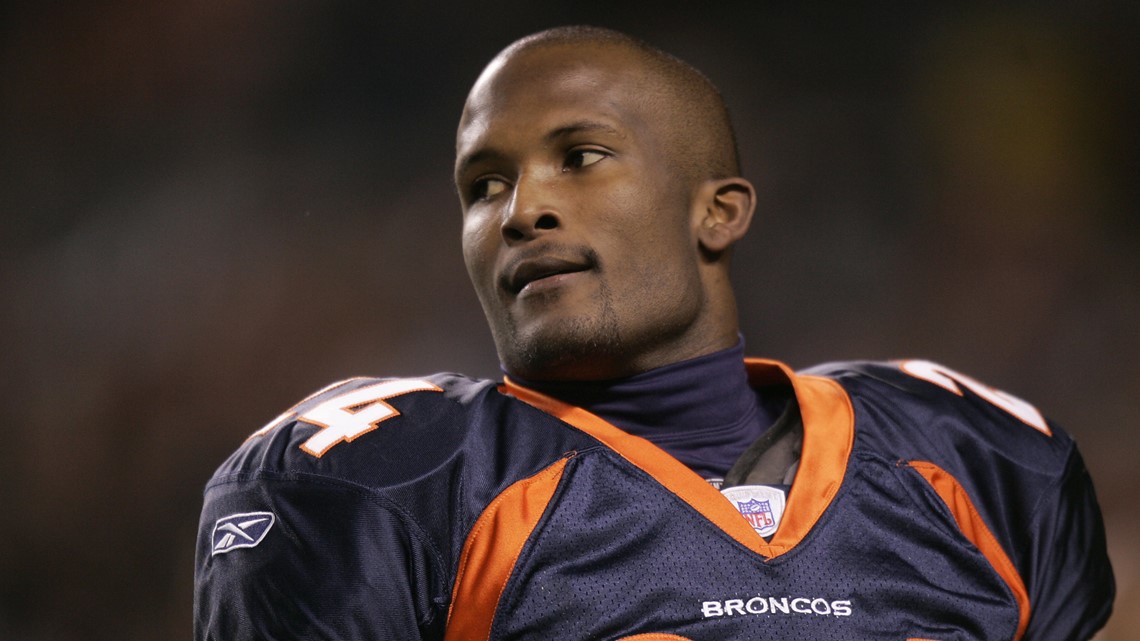
“I look at this thing objectively and I feel the same way,’’ Bailey said. “There hasn’t been a safety as productive as Ed Reed. And a Super Bowl winner as well.
“Tight end, there hasn’t been a tight end as productive as Gonzalez. I don’t have a ring. Now, I don’t think there’s been a corner as consistent as me. But you look at other first-ballot corners, Deion (Sanders) and Darrell (Green), they have multiple rings," Bailey said. "There’s a lot more team success on their side than mine. Mine is a lot of personal success – which is what this thing should be weighted on anyway. But team success definitely doesn’t hurt.’’
As is the case with Ty Law, the former New England cornerback who is perhaps the primary reason why Champ has to sweat the process. Bailey may have been the better player, but Law had three Super Bowl rings during the start of the Patriots’ run. Perhaps, both will get elected.
Although Bailey lives in the city limits of Atlanta, where already inducted Hall of Famers and this year’s HOF finalists will gather, he will stay in a downtown hotel as if he’s coming from out of town. The family of Broncos owner Pat Bowlen, and former Broncos’ safeties Steve Atwater and John Lynch are also HOF finalists.
Bowlen is expected to be elected without much debate. Atwater and Lynch are longshots because two other safeties are expected to be elected – Reed and senior nominee Johnny Robinson.
There is a Hall of Fame reception on Thursday, a Hall of Fame luncheon on Friday, and then the nervous wait while hoping for a knock on the hotel door Saturday.

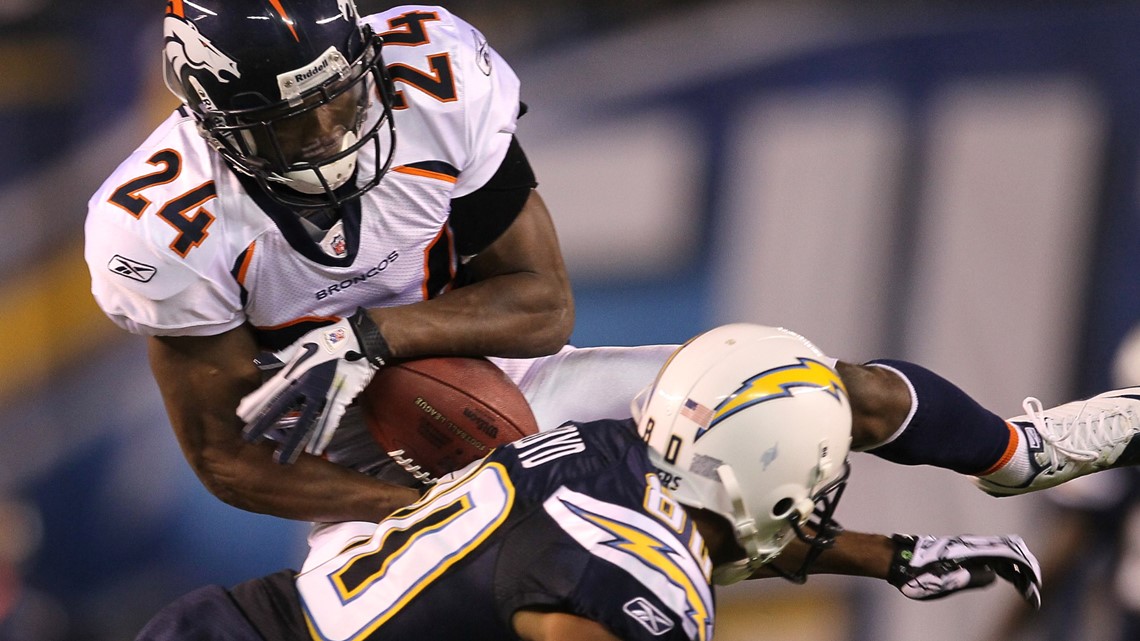
If the Hall voters read the following chapter 5 from the book, Fifty Greatest Players in Denver Broncos History, there would 100 percent certainty Hall president David Baker will come knocking on Bailey’s door. The following excerpt was published in November, 2017:
No. 5, CHAMP BAILEY, cornerback, 2004-2013
The first difficult, front-end decision for this project was choosing between Shannon Sharpe and Champ Bailey for the fourth-best player in Broncos’ history, or first player after the Big Three of John Elway, Terrell Davis and Peyton Manning.
The argument for Champ: He was the best defensive player for a franchise that boasts more great defensive players than offensive players. Among our top 50, 25 were defensive players, 22 were offensive players, and three were specialists (kicker Jason Elam and the versatile Rick Upchurch and Gene Mingo, whose greatness were as specialists). So it was past time to get a defensive player on the list.
As for splitting hairs between Bailey and Sharpe, we project Bailey to be a first-ballot Hall of Famer when he becomes eligible in 2019. He did, after all, earn 12 Pro Bowl berths, the most ever for a cornerback. Sharpe was inducted in his third year of eligibility.
However, we ultimately gave Sharpe the No. 4 slot because at the time of his retirement he held all the tight end records for catches, receiving yards and touchdowns. In other words, he was the all-time best at his position. And again, the criteria that applied to placing Terrell Davis as high as No. 2 and Von Miller at No. 6 was that Super Bowls trumped all tiebreakers.
Sharpe was part of two Super Bowl championship teams. Bailey got to two AFC Championship Games – he was The Reason they got to host the AFC Championship in the 2005 season -- and one Super Bowl. But his Broncos fell short of a Super Bowl ring each time.
Ultimately, so long as Champ’s in the top 5 and the first defensive player listed, we felt good about his placement.
“I appreciate you rating him that way,’’ said John Lynch, a safety teammate of Bailey’s from 2004-07 and another top 50 Bronco. “I think because of his quiet demeanor and lack of bravado, I think he’s a severely underrated player. It’s hard to say that for someone who everyone says will be a first ballot Hall of Famer. I think people are missing the boat, though, on how good this guy was, how special he was.
“In my mind, he was one of the greatest defensive players ever to play the game. He combined an athleticism that was obvious. He ran -- if you say 4.3 in this league that’s about as fast as it gets. But people forget Champ came in with a 4.2. He was one of the fastest players to ever play. He could jump out of the gym, change direction.
“But on top of all that he was a student of the game. I fought hard at Fox (network) to hire him after he retired. They said, ‘Well, he’s a quiet guy.’ And I said, ‘Yeah but he’s one of the most intelligent football players, one of the most cerebral football players I’ve ever been around.’ So he combined that intelligence along with the will to win.
“It irked me a little when people would put Darrelle Revis as the best cornerback in the league when Champ was in his heyday. I think Champ did all the things he did, but you also affect the game when you have all those interceptions. So I felt like Champ was on a different level.”
Bailey’s best statistical seasons were in 2005, when he had 9 interceptions for 239 return yards – including a 100-yard pick return of a Tom Brady pass in a second-round AFC playoff game that amounted to a 14-point swing in the Broncos’ 27-13 victory -- and in 2006 when he had 10 interceptions with 162 return yards.
Put those two seasons together and Bailey compiled an astounding 19 interceptions for 401 return yards, two touchdowns, and practically a third.
“It’s funny thinking back about how great those two years were because you don’t see anybody having years like that now,’’ Bailey said in November, 2016. “You don’t see guys having that number of interceptions and having that much of an impact on the defense.
“I’m not going to lie, it’s a little harder on corners these days. It was hard back then, but the game is tailored to put up points. With the rules, you can’t find that shutdown corner like you used to. You have guys that are really good at it today, but to ask these guys to man up and do it every single play, it’s very hard to do it.’’
To prove Bailey’s point, after his 10-pick season in 2006, the NFL’s last 10 interception season was a year later, in 2007, by San Diego’s Antonio Cromartie. Which was a bit fluky because Cromartie otherwise never had more than 4 picks in a season and finished his career with 31 interceptions. Bailey had 52 career picks (tied for 26th all-time), 34 in his 10 seasons with the Broncos.
____________________________________________________________
Champ’s prime tops in modern-era
In the past 36 years, no one has had more interceptions in back-to-back seasons (counting postseason) than Champ Bailey’s 19 in 2005-06. And only 7 defensive backs had more interceptions in a two-year stretch:
Defensive back, Team ….. INTs ….. Years
Lester Hayes, OAK ….......... 25 … 1979-80
Don Doll, DET ………...….... 23 … 1949-50
Jack Christiansen, DET …… 21 … 1953-54
Tom Keane, DAL/BAL ….….. 20 … 1952-53
Everson Walls, DAL …….…. 20 … 1981-82
Bill Bradley, PHI ………..….. 20 … 1971-72
Otto Schnellbacher, NYG … 20 … 1950-51
Champ Bailey, DEN ..……. 19 … 2005-06
Dainard Paulson, NYJ ……. 19 … 1964-65
Sammy Baugh, WAS …...… 19 … 1942-43
_____________________________________________________________
Bailey’s interceptions shrunk drastically starting in 2007, when quarterbacks gave him the Deion Sanders’ treatment and stopped throwing in his direction.
“He was a shutdown corner in the truest sense of the term,’’ said Broncos kicker Jason Elam. “After those two big seasons he had, teams didn’t go after him pretty much. One of the most natural athletes I’ve ever been around. Talk about quiet and going about his business. He wasn’t going to be all talk. He knew he was going to be prepared. He was going to be quietly humble and then tear you up on Sunday.’’
There was one other aspect of the cornerback position where Bailey was superior to Revis – tackling. Bailey had 699 tackles in his 15 NFL seasons, including 71 and 73 for the Broncos in his otherworldly 2005-06 seasons.
It was Bailey’s willingness to tackle that puts him in the conversation for one best lockdown cornerbacks in NFL history. Sanders? Please. Receivers couldn’t shake him, but he gave ball carriers the Ole’ treatment on his way to recording 200 less tackles than Bailey. Revis, who was still active at the time of this writing, has nearly 300 fewer tackles than Champ.
“It was my attitude,’’ Bailey said. “I wanted to be great at everything. If I was asked to tackle, I wanted to be great at tackling. If I had to block on an interception return, I wanted to be the best blocker. It was me wanting to be great at every part of my game. When there were special plays on offense, I wanted to be great at it. Punt returning. I don’t know any other way to be.’’

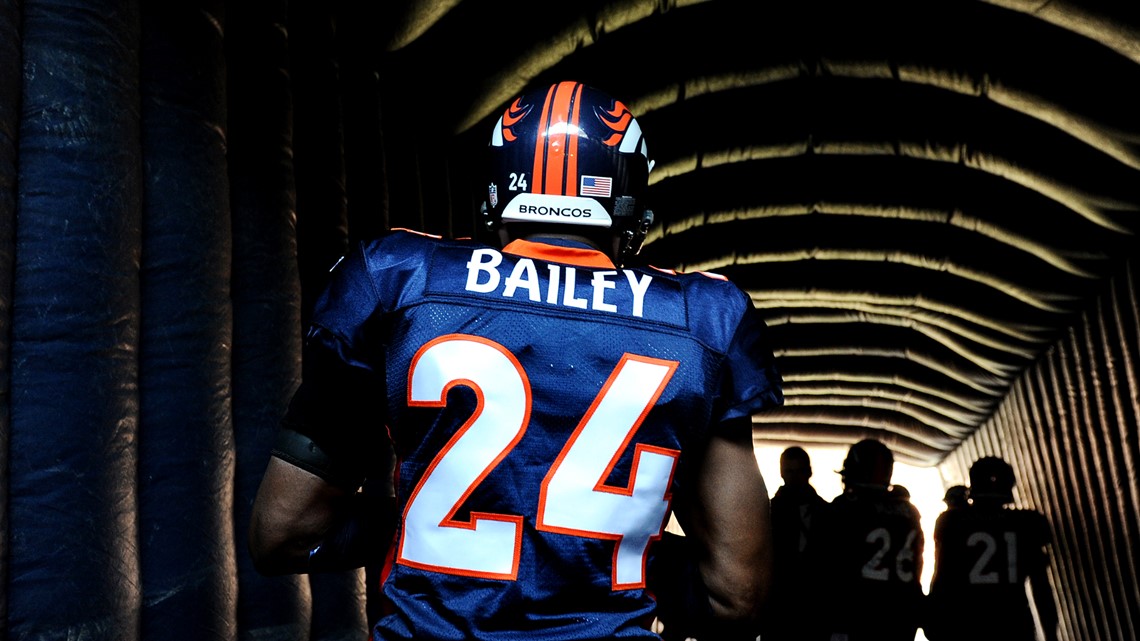
The kid from Folkston
Roland “Champ” Bailey Jr. grew up near the Okefenokee Swamp, in a small, if growing southeast Georgia town of Folkston (population 2,178 in 2000, but nearly doubled to 4,148 by 2010). He was the third of four children raised by Roland Sr. and Elaine Bailey.
“We were out there in the hot, humid climate, all day, every day,’’ Champ said. “In the sand, throwing it around with our guys. That’s what we did. Playing football, basketball, anything with a ball, we were doing it. We thought we could be gymnasts at one point. That’s how country it was. It was awesome.’’
The three boys starred in football from an early age, led by Ron, the oldest who was a two-year starting cornerback at Georgia before his career ended with a foot injury while representing the Tampa Bay Buccaneers in NFL Europe.
Boss, the youngest, also played at Georgia and had a nice NFL career while mostly with the Detroit Lions – and one special year with the Broncos and his brother -- as a linebacker.
But there was no denying that Champ -- a nickname his mom gave him when he was 2 because of his natural affection for anything that was a ball and all the energy he displayed – was the best of the Bailey boys. In fact, at an early age, it was known he was the most sensational young athlete Folkston had ever produced. Larry Allen, who owns a hardware store and coached the Bailey boys at the 11 and 12-year-old levels, said Champ scored 92 touchdowns in those two years.
That doesn’t mean Champ thought he would grow up to become the No. 7 overall pick in the 1999 NFL Draft or make $95.5 million in combined salaries in his 10 years with the Broncos.
“I was always among the best in my age group, or my class,’’ Bailey said. “I think the fact no one had really made it to this level from where I’m from, so nobody gave it much thought (about Champ making it). People close to me knew I had a shot. But you never know because they hadn’t seen it. Those dreams usually fade away once you get to college.
But things kept building and building, and I kept grinding and grinding and people started believing.’’
At Charlton High School, Bailey was not only a star defensive back, he was the team’s punter and quarterback until his senior season, when he gave way to younger brother Boss, who had a better arm. Champ wound up rushing for 3,573 yards and 58 touchdowns (even as a quarterback he ran much more than he passed) and threw for 1,211 yards and 10 touchdowns.
At Georgia, Bailey should have been a stronger Heisman Trophy candidate in his true junior season of 1998 as he had 47 catches for 744 yards and five touchdowns as a receiver, three interceptions as a lockdown cornerback, plus he returned kicks and punts. Bailey did finish seventh in the Heisman balloting that year (Texas running back Ricky Williams was the runaway winner) but he was perhaps hurt that a similarly versatile player, Charles Woodson, had beat out Peyton Manning for the Heisman the year before.
Bailey thought he would go higher than No. 7 in the draft, but that was the whacky year when three quarterbacks – Tim Couch, Donovan McNabb and Akili Smith – went one, two, three and New Orleans coach Mike Ditka traded his entire 1999 draft – eight picks, including two in the first round – to Washington to move up and take the running back Williams.
Washington had another first-round pick at No. 7, where they took Bailey.
In his first game, he intercepted Troy Aikman of the Dallas Cowboys. Later in the year, he had a three-interception game against Arizona, with two coming against a quarterback named Jake Plummer.
When Bailey was traded to the Broncos in 2004, no one was happier than Plummer, who had arrived in Denver the year before.
“I didn’t like Champ Bailey much when he played for the Redskins,’’ Plummer said. “We played them twice a year and he picked me off five times. I rank highest on his list.’’
Carson Palmer later tied Plummer for Bailey interceptions with five. One of Bailey’s interceptions in his three-pick game against Arizona, he returned 56 yards for a touchdown – a play that infuriated the competitive Plummer.
“I gave chase,’’ Plummer said. “I was going to catch his ass. I knew I couldn’t. And the last 5 yards he held the ball out like, “Ha, Ha.’ Pimped me kind of. It was the closest I’ve ever been to run up and slam him to the ground and start wailing on him because I was having a (bad) game.
“When he signed here with the Broncos, I told him that. I said, ‘Man, I used to hate your guts.’ And I told him why and he just kind of chuckled. And I loved him. Not the biggest guy but he just made me better day-in and day-out because I knew he wasn’t going to do anything half-assed in practice. He did his job, you didn’t have to worry about it. He’s going to lock the dude down and he was a great teammate.’’
Bowlen changed Bailey's mind about trade
In his five seasons in Washington, Bailey played in all 80 games. He had five interceptions as a rookie, then one more in a first-round playoff win. He made the Pro Bowl each of the next four years, but Washington never made the playoffs after his rookie season.
At the end of the 2003 season, Bailey’s rookie contract was up, and he was in position to become the highest-paid corner in NFL history. Meanwhile, the Broncos had a running back, Clinton Portis, who was making noise about holding out after he started his career with back-to-back 1,500-yard seasons.
A trade was made with Bailey and a second-round draft pick going to Denver and Portis going to Washington. It’s inconceivable to think now that the Broncos got not only the best cornerback in football, but a second-round pick as a throw-in, which turned out to be running back Tatum Bell, who later went to have his own 1,000-yard season.
Within five years after the trade, corners were a far more valued position than running backs. The deal was the best thing that happened in Bailey’s career as it was not possible for any other fandom to have appreciated him more than those who bleed the orange and blue.
“But I can’t say at the time I wanted to get traded,’’ Bailey said. “I was a guy who was a Washington Redskin at 25 years old who was starting to understand how big a market it was to play in Washington, playing in the NFC East. To be a part of an organization that was top 5 in value in the league. I didn’t want to leave. There were endorsement opportunities.
“But after a year or two, I knew the difference was Pat Bowlen. You’ve got a guy who’s running the team the way he runs it, you’re going to have success. And I knew I had a better chance at having success in Denver than I did in Washington. And that was the best thing that happened to my career.’’
The highlight of Bailey’s career? There were three he singled out. One, was the chance to play with his brother Boss on the same defense in 2008. It didn’t work out as hoped as both Baileys suffered injuries that year and the Broncos blew a three-game lead with three to go to miss the playoffs. It was still a rare achievement few families are able to share.
Two, was playing in the Super Bowl in Champ’s final season of 2013. Bailey suffered from a Lisfranc injury in his left foot that forced him to miss all but five regular-season games and the Broncos were crushed in that Super Bowl, 43-8, by the Seattle Seahawks.
And we saved his No. 1 highlight for last. Champ fans won’t need two guesses to come up with his favorite memory during his time with the Broncos.
“Obviously, the game against the Patriots in the playoffs,’’ Bailey said of the 2005-season, second-round AFC playoff game at Invesco Field at Mile High. “(Tom) Brady was 10-0 (in the postseason.) They were running so hot at the moment. And to be able to eliminate them -- that was a big deal. It gave us a shot to go to the Super Bowl. Even though we didn’t, I could see people starting to give us that respect that we deserved, even for myself.’’
His two most heartbreaking defeats were in the next week’s AFC Championship Game against underdog Pittsburgh, and in Super Bowl 48, which turned out to be the final game of his career.
“You know what, they both stunk but when I look back – it’s easy for me to be objective now because I’m away, but the way I feel about it is at least we got to those points,’’ Bailey said. “Yes, I’m upset by the result. But I got there. I’m glad to say that I played in championship games and I played in the Super Bowl. Some guys don’t get to experience that.
“I wish we could have won more. I wish I would have finished with two rings. But I can’t dwell on it. People tell me to this day I had a great career. I feel like it was great. I appreciated every moment of it.’’


